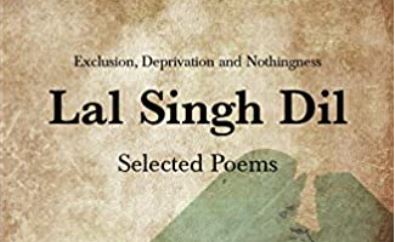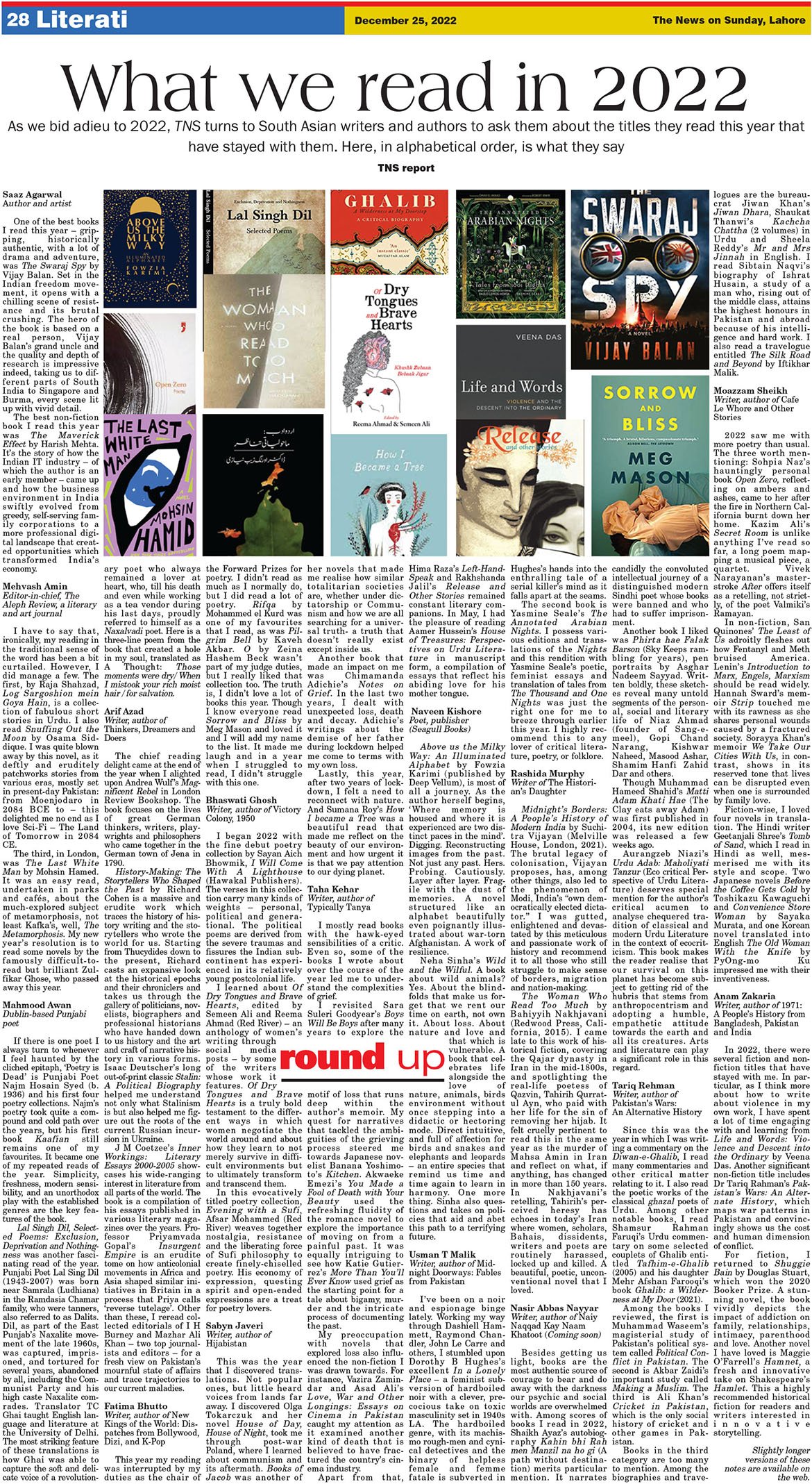Mahmood Awan (The News on Sunday, 25th December 2022)
If there is one poet I always turn to whenever I feel haunted by the cliched epitaph, “Poetry is Dead” it is Punjabi poet Najm Hosain Syed (b. 1936) and his first four poetry collections. Najm’s poetry took quite a compound and cold path over the years, but his first book Kaafian remains one of my favourites. It became one of my repeated reads of the year. Kaafian was first published in May 1965. The print I have is its second edition, published by Majlis Shah Hussain in July 1976. Simplicity, freshness, modern sensibility and an unorthodox play with the established genres are the key features of the book. The verses of the book that became part of the pro-people street demonstrations included: JhaiRa mukkya karniaa(n) Bharniaa(n) da/ Aokhi raat hissab di ho guzri. Raat (night) remains one of the key metaphors in the book and Najm’s poetry. Ajj di raat, bass ajj di raat, mainu hor jeeoN day/ Aj di raat, bass raat raat lai, roh tay buutt ik thaa(n) ni, tu picchlay laikhay mairay naal mukaa lay. This legendary line, I kept singing: Jiss vailay Raat aaway gi asseen ghar nahi hona.
Lal Singh Dil, Selected Poems: Exclusion, Deprivation and Nothingness was another fascinating read of the year. Poet Lal Sing Dil (1943-2007) was born near Samrala (Ludhiana) in the Ramdasia Chamar family, who were tanners, also referred to as dalits. Dil, as part of the East Punjab’s Naxalite movement of the late 1960s, was captured, imprisoned and tortured for several years, abandoned by all, including the Communist Party and his high-caste Naxalite comrades. Translator TC Ghai taught English language and literature at the University of Delhi. The most striking feature of these translations is the manner in which Ghai was able to capture the soft and delicate voice of a revolutionary poet who always remained a lover at heart; who, till his death and even while working as a tea vendor during his last days, proudly referred to himself as a Naxalvadi poet. Here is a three-line poem from the book that created a hole in my soul, translated as A Thought: Those moments were dry/ When I mistook your rich moist hair / for salvation.
Published on 25th December 2022 in The News on Sunday.
https://www.thenews.com.pk/tns/detail/1023026-what-we-read-in-2022


